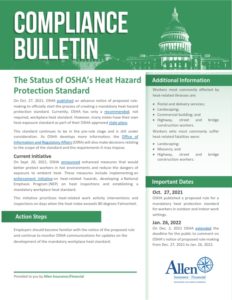

By Dan Bookham for December 2022 WorkBoat Magazine
Hang around vessels, shipyards, terminals and insurance long enough and you are bound to become familiar with the seemingly strange ritual of the loss control visit. The frequency of the visits depends on the individual insurance company but invariably at some point risk engineers will show up to visit clad in high viz and hard hat, usually clutching a camera (and sometimes a clipboard) to inspect your boat or facility for potential hazards and issues. Sometimes they bring donuts. They also always issue a report and list “recommendations” (read requirements, lest you lose your insurance), which, unlike the Krispy Kremes, can often feel hard to digest.
It doesn’t have to be that way, however. By taking a proactive approach to risk management and drawing on the resources of your insurance company (resources your premium payments fund), those loss control visits can feel less like a visit by a drill instructor looking for an unmade bed and more like a collaboration with safety specialists who can both save you money and ensure your people head home each day or after each trip with the same number of digits and limbs they had when they came in.
In preparing for a loss control visit, I highly recommend working with your insurance agent to undertake a preliminary walk-through to see if you both can spot any easy fixes or potential trouble spots (a frayed cord on a tool for example, or sloppy housekeeping in a workshop). Having your own punch list of planned corrections and improvements will minimize any surprises and make it easier to budget for the fixes. When the loss control team visits, rather than just relying on the written report, be sure to ask them to flag issues in a post walk-through meeting so you can discuss them while memories are fresh.
When the report comes in, be prepared to respond with a timeline to address the elements they raise. I’ve often found that draconian demands to make immediate fixes soften if you demonstrate a willingness to work on trouble spots at a reasonable (and often more affordable) pace. Proactively use the tools insurers provide, both online and in person, to make the most of your premium dollars and improve the safety and risk profile of your business.
Not only does a proactive and collaborative approach to loss control make the workday safer for your people, your customers and their property, your passengers, and your own stuff, it also can result in lower lifetime insurance costs as fewer claims and a proactive approach to safety and risk make you an attractive customer for insurers to woo.









